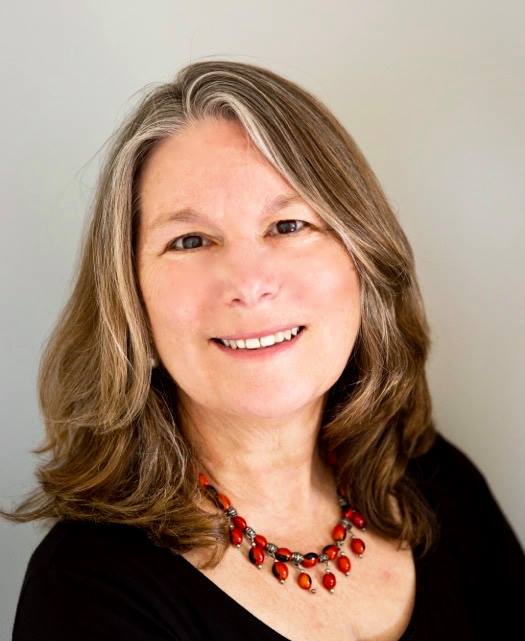When I was a child in Newton, my grandmother took me to a very old-fashioned bookstore, Lauriat’s in Chestnut Hill, or, perhaps, to a bookstore in downtown Boston. Afterward, we would get ice cream at an old-fashioned ice cream parlor with iron chairs. I don’t know how many times we actually went, but it made an impression. I adored my grandmother—and always associated her with books. I loved books and loved that our family lived in Boston, a hub of publishing, of the book business. I also loved “Make Way for Ducklings.”
When we moved from Newton Highlands to Newton Centre—near what is now the Memorial Spaulding School—and I was old enough, I would ride my bike to Oak Hill Library. I fell in love with that little library and promised myself I would read every book on the children’s shelves! I also loved the musty old library tucked away in a tiny, upstairs room at Temple Emanuel. Nobody else ever seemed to visit that treasure trove. It was mine, all mine! I loved reading about the wise men of Chelm. Those were my special places—sacred spaces—all filled with words. I would delve into a book, enter my internal space and find peace.
When I became a writer as an adult, I wanted to share these sacred experiences with others, to help other children find the joy I discovered through words. One place I found peace as an adult was during Friday night services at my synagogue in New York City. When everyone sang the lovely melody to “Shabbat Shalom” (the melody that goes something like, “Shaaaa-ahhh-bat Shalom, shaaaaa-ahhhhhh-bat, shaaa-aaaah baa-aaat shalom”), I found the tune and the words so comforting.
I began thinking about songs that referenced the days of the week. Sure, we have “Monday, Monday” and “Goodbye, Ruby Tuesday,” but what else do we have? Are there songs about, say, Wednesday? I wanted to sing about Shabbat, to share the quiet specialness, the “zen,” if you will, of Shabbat. So, I thought I’d write a book contrasting Shabbat with the other days of the week, those noisy, busy days. Writing it in rhyme, with alliteration to keep older children involved, was so much fun! That’s how “Shh…Shh…Shabbat” (KarBen Publishing, “one of the best Jewish children’s books of 2016” by Tablet Magazine) came to be.
One of my newest books, “Shalom Bayit: A Peaceful Home” (KarBen, 2020) reminds readers that they can find joy and peace at home, and that every home can be a cozy, restful, safe and loving place. I started thinking about this idea a few years ago when, at temple, the rabbi asked: “What makes your home a sacred space?” I thought about how we take off our shoes when we enter our home. Taking off our shoes keeps our home cleaner, neater. It also reminds us that we’re stepping into something special, someplace sacred, someplace where we don’t want the schmutz of the outside world to intrude. I think we all need special places—a fort in the living room, a table covered with a blanket, a closet, a place to hide where no one can see us. Sometimes that retreat has to be imaginary, because, sometimes, there are just too many people around or there’s too much going on to make an actual fort or a secret hiding place.
I also wanted to show that there are all sorts of homes, small and grand, and that each, in its own way, is special. That’s important. It’s also important to give attention to people who don’t have homes; maybe they have a sidewalk, an awning, somewhere that’s their spot, their special spot, a spot where they can, hopefully, find peace. That’s also where books come in. We can cuddle up in a special chair, undisturbed and alone with a book or a thought, and enter our own world and, we hope, find peace. Then, when we come out, we can share that special peace, we can help make that peace blossom in our homes. For a home should be just that: a place of peace, a special place.

These days, as Monday blurs into Tuesday into Wednesday, Shabbat is more important than ever. Shabbat takes the messiness out of the blur. It orders time, gives us a handle on the passage of time and on the importance of honoring our own time in this world, and being grateful for every moment. In today’s complicated world, we’re also reminded these days of the importance of finding peace and harmony at home—of the need for shalom bayit. It’s hard, sometimes. Especially these days. But building a fort or throwing a blanket over a table can help.
Linda Elovitz Marshall grew up near Boston and raised her four children, a small flock of sheep, lots of zucchinis and countless rabbits in a historic farmhouse overlooking the Hudson River in upstate New York. A graduate of Barnard College of Columbia University, she has, in addition to writing and farming, taught early childhood and parenting education, and owned a bookstore.
This post has been contributed by a third party. The opinions, facts and any media content are presented solely by the author, and JewishBoston assumes no responsibility for them. Want to add your voice to the conversation? Publish your own post here. MORE


